#kubernetes interview questions
Explore tagged Tumblr posts
Text
#spotify#kubernetes cluster setup#kubernetes#kubernetes cluster#kubernetes interview questions#kubernetes installation
0 notes
Text
march 1st i have no interviews and i am feeling like SUCH A LOSER. i know im smart but why am i loser. i need to plan this months goals. first of all im dividing it in two. first fifteen days have project related goals, second half is theory related. meaning i need to create a kubernetes/docker project + 2 cloud projects in the next fifteen days, second half we need to focus on exam questions and quizzes. im doing like 40% good in that. idk. im just so tired of my own bullshit.
4 notes
·
View notes
Text
DevOps Training Institute in Indore – Your Gateway to Continuous Delivery & Automation
Accelerate Your IT Career with DevOps
In today’s fast-paced IT ecosystem, businesses demand faster deployments, automation, and collaborative workflows. DevOps is the solution—and becoming proficient in this powerful methodology can drastically elevate your career. Enroll at Infograins TCS, the leading DevOps Training Institute in Indore, to gain practical skills in integration, deployment, containerization, and continuous monitoring with real-time tools and cloud technologies.
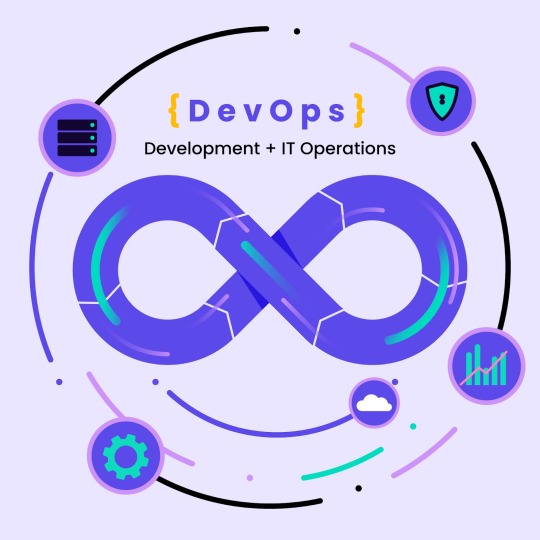
What You’ll Learn in Our DevOps Course
Our specialized DevOps course in Indore blends development and operations practices to equip students with practical expertise in CI/CD pipelines, Jenkins, Docker, Kubernetes, Ansible, Git, AWS, and monitoring tools like Nagios and Prometheus. The course is crafted by industry experts to ensure learners gain a hands-on understanding of real-world DevOps applications in cloud-based environments.
Key Benefits – Why Our DevOps Training Stands Out
At Infograins TCS, our DevOps training in Indore offers learners several advantages:
In-depth coverage of popular DevOps tools and practices.
Hands-on projects on automation and cloud deployment.
Industry-aligned curriculum updated with the latest trends.
Internship and job assistance for eligible students. This ensures you not only gain certification but walk away with project experience that matters in the real world.
Why Choose Us – A Trusted DevOps Training Institute in Indore
Infograins TCS has earned its reputation as a reliable DevOps Training Institute in Indore through consistent quality and commitment to excellence. Here’s what sets us apart:
Professional instructors with real-world DevOps experience.
100% practical learning through case studies and real deployments.
Personalized mentoring and career guidance.
Structured learning paths tailored for both beginners and professionals. Our focus is on delivering value that goes beyond traditional classroom learning.
Certification Programs at Infograins TCS
We provide industry-recognized certifications that validate your knowledge and practical skills in DevOps. This credential is a powerful tool for standing out in job applications and interviews. After completing the DevOps course in Indore, students receive a certificate that reflects their readiness for technical roles in the IT industry.
After Certification – What Comes Next?
Once certified, students can pursue DevOps-related roles such as DevOps Engineer, Release Manager, Automation Engineer, and Site Reliability Engineer. We also help students land internships and jobs through our strong network of hiring partners, real-time project exposure, and personalized support. Our DevOps training in Indore ensures you’re truly job-ready.
Explore Our More Courses – Build a Broader Skill Set
Alongside our flagship DevOps course, Infograins TCS also offers:
Cloud Computing with AWS
Python Programming & Automation
Software Testing – Manual & Automation
Full Stack Web Development
Data Science and Machine Learning These programs complement DevOps skills and open additional career opportunities in tech.
Why We Are the Right Learning Partner
At Infograins TCS, we don’t just train—we mentor, guide, and prepare you for a successful IT journey. Our career-centric approach, live-project integration, and collaborative learning environment make us the ideal destination for DevOps training in Indore. When you partner with us, you’re not just learning tools—you’re building a future.
FAQs – Frequently Asked Questions
1. Who can enroll in the DevOps course? Anyone with a basic understanding of Linux, networking, or software development can join. This course is ideal for freshers, IT professionals, and system administrators.
2. Will I get certified after completing the course? Yes, upon successful completion of the training and evaluation, you’ll receive an industry-recognized certification from Infograins TCS.
3. Is this DevOps course available in both online and offline modes? Yes, we offer both classroom and online training options to suit your schedule and convenience.
4. Do you offer placement assistance? Absolutely! We provide career guidance, interview preparation, and job/internship opportunities through our dedicated placement cell.
5. What tools will I learn in this DevOps course? You will gain hands-on experience with tools such as Jenkins, Docker, Kubernetes, Ansible, Git, AWS, and monitoring tools like Nagios and Prometheus.
Join the Best DevOps Training Institute in Indore
If you're serious about launching or advancing your career in DevOps, there’s no better place than Infograins TCS – your trusted DevOps Training Institute in Indore. With our project-based learning, expert guidance, and certification support, you're well on your way to becoming a DevOps professional in high demand.
0 notes
Text
DevOps interview questions focus on assessing candidates' knowledge of continuous integration, continuous delivery (CI/CD), automation, and cloud technologies. Common topics include version control systems, infrastructure as code, containerization, monitoring, and collaboration between development and operations teams. Candidates should demonstrate understanding of DevOps principles, tools like Jenkins, Docker, Kubernetes, and troubleshooting deployment processes.
0 notes
Text
SRE (Site Reliability Engineering) Interview Preparation Guide
Site Reliability Engineering (SRE) is a highly sought-after role that blends software engineering with systems administration to create scalable, reliable systems. Whether you’re a seasoned professional or just starting out, preparing for an SRE interview requires a strategic approach. Here’s a guide to help you ace your interview.
1. Understand the Role of an SRE
Before diving into preparation, it’s crucial to understand the responsibilities of an SRE. SREs focus on maintaining the reliability, availability, and performance of systems. Their tasks include:
• Monitoring and incident response
• Automation of manual tasks
• Capacity planning
• Performance tuning
• Collaborating with development teams to improve system architecture
2. Key Areas to Prepare
SRE interviews typically cover a range of topics. Here are the main areas you should focus on:
a) System Design
• Learn how to design scalable and fault-tolerant systems.
• Understand concepts like load balancing, caching, database sharding, and high availability.
• Be prepared to discuss trade-offs in system architecture.
b) Programming and Scripting
• Proficiency in at least one programming language (e.g., Python, Go, Java) is essential.
• Practice writing scripts for automation tasks like log parsing or monitoring setup.
• Focus on problem-solving skills and algorithms.
c) Linux/Unix Fundamentals
• Understand Linux commands, file systems, and process management.
• Learn about networking concepts such as DNS, TCP/IP, and firewalls.
d) Monitoring and Observability
• Familiarize yourself with tools like Prometheus, Grafana, ELK stack, and Datadog.
• Understand key metrics (e.g., latency, traffic, errors) and Service Level Objectives (SLOs).
e) Incident Management
• Study strategies for diagnosing and mitigating production issues.
• Be ready to explain root cause analysis and postmortem processes.
f) Cloud and Kubernetes
• Understand cloud platforms like AWS, Azure, or GCP.
• Learn Kubernetes concepts such as pods, deployments, and service meshes.
• Explore Infrastructure as Code (IaC) tools like Terraform.
3. Soft Skills and Behavioral Questions
SREs often collaborate with cross-functional teams. Be prepared for questions about:
• Handling high-pressure incidents
• Balancing reliability with feature delivery
• Communication and teamwork skills
Read More: SRE (Site Reliability Engineering) Interview Preparation Guide
0 notes
Text
How to Hire a DevOps Engineer: A Comprehensive Guide for Modern Businesses
In today’s fast-paced tech-driven world, hiring a skilled DevOps engineer is no longer optional—it’s essential. These professionals are the backbone of seamless software delivery, ensuring that development and operations work in harmony. If you're looking to hire a DevOps engineer, this guide will help you navigate the process and find the right talent for your team. And if you want to skip the hassle, OWOW is here to help you hire world-class engineers with ease.
What Does a DevOps Engineer Do?
A DevOps engineer is responsible for bridging the gap between software development and IT operations. They ensure efficient workflows, automate processes, and maintain a robust infrastructure for smooth application deployment. Key responsibilities include:
Implementing CI/CD pipelines.
Managing cloud infrastructure and ensuring scalability.
Enhancing security through DevOps best practices.
Monitoring and troubleshooting system performance.
Why Hiring the Right DevOps Engineer Matters
The right DevOps engineer can:
Streamline Operations: Eliminate bottlenecks in software delivery.
Reduce Downtime: Ensure high availability and quick recovery from failures.
Boost Productivity: Automate repetitive tasks, allowing teams to focus on innovation.
Ensure Security: Implement security measures within the DevOps lifecycle.
Steps to Hire a DevOps Engineer
Define Your Requirements
What platforms do you use? (AWS, Azure, Kubernetes, etc.)
What tools should they master? (Jenkins, Docker, Terraform, etc.)
Do you need specialized expertise, such as cloud-native development or cybersecurity?
Write a Compelling Job Description Highlight essential skills like scripting (Python, Bash), cloud management, and familiarity with DevOps tools. Be transparent about your expectations and company culture.
Leverage OWOW for Hiring Save time and resources by partnering with OWOW. We connect you with pre-vetted, highly skilled DevOps engineers who are ready to join your team. Explore OWOW’s platform to hire top talent from across the globe.
Conduct Rigorous Interviews Test their technical skills, problem-solving ability, and cultural fit. Questions could include:
How would you set up a CI/CD pipeline from scratch?
How do you monitor application performance in a cloud environment?
Onboard and Support Provide a clear onboarding process and access to the tools they’ll need. Foster a collaborative environment to help them succeed.
Where to Find the Best DevOps Engineers
Finding skilled DevOps engineers can be challenging. Traditional hiring methods may not yield the results you need. That’s where OWOW comes in. With a global talent pool and rigorous vetting processes, we make hiring DevOps engineers simple and effective.
Visit OWOW Talents to get started today.
Conclusion
Hiring a DevOps engineer is an investment in the future of your business. With the right approach and resources, you can find the perfect fit for your team. For a hassle-free hiring experience, trust OWOW to connect you with the best DevOps engineers from around the world.
Start building your dream DevOps team today—Explore OWOW!
0 notes
Text
Comprehensive Guide to Full Stack Development Interview Questions for Aspiring Developers
Full Stack Development is one of the most sought-after skills in the tech industry today. As companies increasingly rely on web and mobile applications to drive their businesses, the demand for full stack developers is growing exponentially. Whether you’re an experienced developer or a fresh graduate, preparing for a full stack development interview requires a combination of technical knowledge, problem-solving skills, and a deep understanding of both front-end and back-end technologies.
In this comprehensive guide, we will walk you through the key full stack development interview questions, helping you ace your next interview and land that dream job.
What is Full Stack Development?
Before diving into interview questions, let’s quickly clarify what full stack development entails. A Full Stack Developer is someone who can work on both the front-end (client-side) and back-end (server-side) of a web application. The front-end is what users interact with, while the back-end handles the logic, database, and server interactions.
A full stack developer typically works with:
Front-end technologies: HTML, CSS, JavaScript, frameworks like React, Angular, or Vue.js
Back-end technologies: Node.js, Express.js, Ruby on Rails, Django, or Spring Boot
Databases: SQL (MySQL, PostgreSQL) or NoSQL (MongoDB, Firebase)
Version control systems: Git
Deployment: Docker, Kubernetes, cloud platforms like AWS, Google Cloud, and Azure
Key Full Stack Development Interview Questions
Here are some of the most common interview questions you can expect during your full stack development interview, categorized by topic:
1. General Questions
These questions test your overall knowledge and understanding of the full stack development process.
What is the difference between front-end and back-end development?
What are the responsibilities of a full stack developer?
Can you describe the architecture of a web application?
How do you approach debugging an application with both front-end and back-end issues?
2. Front-End Development Questions
Front-end skills are essential for building engaging and user-friendly interfaces. Expect questions like:
What are the differences between HTML5 and HTML4?
Explain the box model in CSS.
What are the differences between JavaScript and jQuery?
What is a responsive design, and how do you implement it?
What are the key features of modern JavaScript frameworks (like React, Angular, or Vue.js)?
3. Back-End Development Questions
These questions evaluate your ability to build and maintain the server-side logic of applications.
What is RESTful API, and how do you implement one?
What is the difference between SQL and NoSQL databases?
Can you explain how a Node.js server works?
How would you handle authentication and authorization in a web application?
4. Database Questions
Database management is a critical aspect of full stack development. Be prepared to answer:
What is normalization, and why is it important in database design?
Explain the ACID properties of a database.
What is an ORM (Object-Relational Mapping) and how is it used?
What are the different types of joins in SQL?
5. Version Control and Deployment Questions
Proficiency with version control and deployment is a must-have for full stack developers. You may be asked:
What is Git, and how do you use it?
Explain the concept of branching in Git.
How do you deploy a web application?
What is Continuous Integration/Continuous Deployment (CI/CD), and why is it important?
6. Problem-Solving and Coding Questions
Coding challenges are a standard part of the interview process. Be prepared to solve problems on the spot or in a coding test.
Write a function to reverse a string in JavaScript.
How would you find the second-largest number in an array?
How do you handle asynchronous operations in JavaScript?
Tips for Preparing for Full Stack Development Interviews
To increase your chances of success in your full stack development interview, consider these tips:
Master both front-end and back-end skills: You must be well-versed in technologies used in both the front-end and back-end. Hands-on practice is essential.
Stay up to date with the latest technologies: The field of web development is constantly evolving. Be sure to keep up with the latest trends, libraries, and frameworks.
Practice coding challenges: Use platforms like LeetCode, HackerRank, and Codewars to sharpen your problem-solving skills.
Build a portfolio: Showcase your work through personal projects or contributions to open-source projects. A portfolio will demonstrate your practical experience.
Prepare for behavioral questions: Interviewers often ask behavioral questions to gauge how you work in a team, handle stress, and deal with challenges. Practice answering these questions in a clear and concise manner.
Bonus: Watch This Video for More Insights
If you're looking for more guidance and expert insights on acing your full stack development interview, be sure to check out this helpful YouTube video: Comprehensive Full Stack Development Interview Guide.
This video provides valuable tips and real-world examples to help you succeed in your interview preparation.
Conclusion
Full stack development is a rewarding career, but it requires dedication, a strong understanding of both front-end and back-end technologies, and the ability to problem-solve effectively. By mastering the key concepts, preparing for common interview questions, and practicing your coding skills, you’ll be well on your way to impressing your interviewers and securing a job as a full stack developer.
Good luck with your interview preparation!
0 notes
Text
How do I prepare for a Java full stack developer interview?
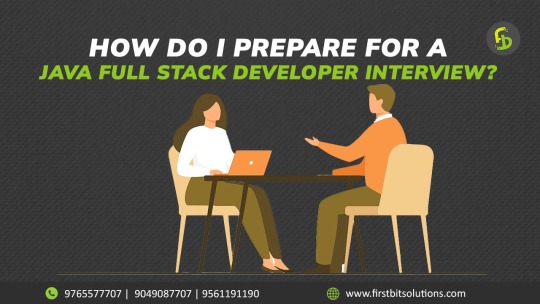
Preparing for a Java Full Stack Developer interview requires a blend of technical knowledge, hands-on experience, and good problem-solving skills. Here's a guide to help you get interview-ready, along with the mock test practices we conduct at FirstBit Solutions.
1. Solidify Your Java Basics
Core Java Concepts: Ensure you are clear on Object-Oriented Programming (OOP) principles, exception handling, collections, multithreading, and Java 8 features like streams and lambda expressions.
Hands-on Practice: Coding problems around data structures, algorithms, and solving common interview questions will help you get comfortable with Java fundamentals.
2. Master Front-end Development
HTML, CSS, and JavaScript: Be proficient in creating responsive web pages. Know how to use JavaScript frameworks like React or Angular for building dynamic and interactive front-ends.
Frameworks & Tools: Be familiar with Bootstrap for styling, and JavaScript ES6+ features for improved code writing.
3. Deep Dive into Back-end Technologies
Spring Framework: Learn Spring Boot, Spring MVC, and how to build RESTful services. This is crucial as most full stack projects use Spring for back-end development.
Hibernate & JPA: Knowing how to work with databases and perform object-relational mapping (ORM) is essential.
Microservices: Understanding how to build and manage microservices architecture using Java is increasingly important.
4. Databases
SQL/NoSQL Databases: Have a good understanding of SQL databases like MySQL or PostgreSQL, as well as NoSQL databases like MongoDB.
Query Optimization: Be prepared to answer questions on query optimization and efficient data retrieval techniques.
5. Version Control & DevOps Basics
Git: Know how to manage code repositories using Git, push, pull requests, and merging code.
CI/CD Pipelines: Understand the basics of Jenkins, Docker, and Kubernetes to know how code moves from development to production.
6. Soft Skills & Problem-Solving
Team Collaboration: Be prepared to showcase how you work in teams, communicate effectively, and handle project management tools like Jira or Trello.
Problem-Solving: Practice live coding sessions and technical questions on platforms like LeetCode, Code Signal, or Hacker Rank to enhance your algorithm-solving skills.
Mock Test Practices at FirstBit Solutions
At FirstBit Solutions, we conduct regular mock tests and interview simulations to help you get real-time feedback. Here’s how our mock tests prepare you:
Technical Rounds: These cover Java basics, Spring, Hibernate, front-end development with JavaScript, and problem-solving. The focus is on building clean, efficient code.
Hands-on Projects: You'll be given small projects to showcase your ability to develop both front-end and back-end solutions.
HR Interview Practice: Our sessions prepare you to communicate clearly, articulate your strengths, and answer behavioural questions confidently.
Mock tests provide a well-rounded preparation, helping you understand your strengths and the areas where you need improvement. You’ll receive constructive feedback after each round to ensure you’re ready to face the interview with confidence.
Conclusion
Preparing for a Java Full Stack Developer interview involves mastering both front-end and back-end technologies, honing your problem-solving skills, and participating in mock tests to simulate real interview conditions. At FirstBit Solutions, we support you through this journey with regular tests, hands-on projects, and personalized feedback.
Good luck with your interview preparation!
#education#programming#tech#technology#training#fullstack#fullstackdeveloper#developer#interview#interviewtips#job interview
0 notes
Text
#Visualpath is a top institute in Hyderabad offering #MLOpsCourse with experienced, real-time trainers. They provide study materials, interview questions, and real-time projects to help students gain practical skills. We Provide to Individuals Globally in the USA,UK, Canada, etc. Contact us at . For more information, call +91-9989971070.
Visit: https://visualpath.in/mlops-online-training-course.html
#MLOps #MachineLearning #AI #DevOps #DataScience #Automation #AIOps #MLModelDeployment #DataEngineering #ModelMonitoring #AIInfrastructure #MLPipeline #AIModels #CloudComputing #DataOps #Kubernetes

#MLOps Course in Hyderabad#MLOps Online Course#MLOps Online Training#MLOps Training in Hyderabad#Machine Learning Operations Training#MLOps Training Course#MLOps Course#MLOps Training Online
0 notes
Text
Which Full Stack Developer Program is Best? | SyntaxLevelUp
In today’s digital-first world, full stack developers course in pune have become indispensable assets to businesses. Companies seek professionals with the ability to handle both the front-end and back-end of applications, making the role of a full stack developer extremely lucrative. If you’re considering a career in full stack development, you might wonder, “Which full stack developer program is best?” Enter SyntaxLevelUp, a training provider known for its comprehensive full stack developer training.

Why Choose Full Stack Development?
Before diving into the details of specific programs, let’s explore why full stack development is a hot career choice:
High Demand: Full stack developers are sought after for their versatility, being able to manage both client-facing and server-side aspects of applications.
Great Earning Potential: With demand comes attractive salary packages. Full stack developers often command higher salaries than their specialized counterparts.
Career Growth: Working in both the front-end and back-end provides a holistic view of software development, opening doors to various leadership and architectural roles.
Which Full Stack Developer Program is Best?
There are many full stack development courses available, but choosing the right one is critical to ensuring career success. Here's why SyntaxLevelUp is a top contender:
1. Comprehensive Curriculum
SyntaxLevelUp offers one of the most robust and current full stack developer course in pune programs. The course is designed to provide hands-on experience with the latest technologies, including:
Front-End Technologies: Learn to build stunning user interfaces using HTML5, CSS3, JavaScript, and popular libraries like React.js or Angular.
Back-End Mastery: Gain expertise in back-end languages such as Node.js, Python, and frameworks like Express.js or Django.
Database Management: The course also covers database technologies like MongoDB, MySQL, and PostgreSQL.
DevOps Practices: SyntaxLevelUp integrates DevOps tools such as Docker, Jenkins, and Kubernetes, providing a well-rounded education that prepares you for real-world scenarios.
2. Industry-Experienced Instructors
SyntaxLevelUp prides itself on its team of instructors who bring years of industry experience to the classroom. Their deep understanding of full stack development and practical know-how ensures students are learning not just theory, but also the application of knowledge in real-world projects.
3. Project-Based Learning
The best way to master full stack development is through project-based learning, and SyntaxLevelUp excels in this area. Throughout the course, students work on live projects, building end-to-end applications that simulate the challenges they will face in their professional careers.
4. Mentorship and Career Support
Another factor that makes SyntaxLevelUp one of the best full stack developer training providers is its strong focus on mentorship and career guidance. Students receive personalized support from industry mentors and get assistance with resume building, interview preparation, and networking opportunities to help secure a job after completing the course.
The SyntaxLevelUp Edge
So, when asking the question, “Which full stack developer program is best?” SyntaxLevelUp comes highly recommended for several reasons:
Comprehensive Training: Covering all aspects of full stack development from front-end to back-end, with real-world tools.
Industry Expertise: Courses designed and taught by professionals with years of industry experience.
Career Assistance: Job-ready skills, mentorship, and career support that sets students on the path to success.
Final Thoughts
For aspiring developers wondering which full stack developer program is best, SyntaxLevelUp provides an excellent balance of technical depth, hands-on learning, and career-focused mentorship. Whether you are just starting or looking to upskill, SyntaxLevelUp has a program tailored to meet your needs.
Start your journey with SyntaxLevelUp today, and become a proficient full stack developer ready to take on the digital challenges of tomorrow!Looking for the best full stack training in Pune? SyntaxLevelUp offers a comprehensive full stack developer course in Pune designed to equip you with skills in front-end, back-end, and database technologies. Whether you're aiming for a full stack web development course in Pune or a specialized full stack Java developer course, SyntaxLevelUp provides expert-led classes, hands-on projects, and guaranteed career support. With our full stack developer course in Pune with placement, you'll receive real-world training and job assistance. Join the top full stack classes in Pune and fast-track your career in tech today!
#fullstack training in pune#full stack developer course in pune#full stack developer course in pune with placement#full stack java developer course in pune#full stack developer classes in pune#full stack course in pune#best full stack developer course in pune#full stack classes in pune#full stack web development course in pune
0 notes
Text
What are the questions asked in DevOps interview for bigginers?
In the competitive IT industry, DevOps is becoming increasingly popular, and aspiring professionals are often asked a variety of questions in interviews. This guide provides you with the top 20 beginner DevOps interview questions, along with detailed explanations to help you prepare confidently.
1. What is DevOps?
Explanation: DevOps is a set of practices that combines software development (Dev) and IT operations (Ops). It aims to shorten the development lifecycle while delivering features, fixes, and updates frequently in alignment with business objectives.
2. What are the key components of DevOps?
Explanation: The key components of DevOps include continuous integration, continuous delivery (CI/CD), automation, infrastructure as code (IaC), monitoring, and collaboration between teams.
3. Explain Continuous Integration (CI).
Explanation: CI is a DevOps practice where developers frequently merge their code changes into a central repository, followed by automated builds and tests. This helps catch bugs early and speeds up the development process.
4. What is Continuous Delivery (CD)?
Explanation: CD ensures that code changes are automatically prepared for a release to production. It builds upon CI and automates the delivery of new updates, ensuring they are ready for production after passing through various test stages.
5. What are some common DevOps tools?
Explanation: Some popular DevOps tools include:
Jenkins for CI/CD automation
Docker for containerization
Kubernetes for container orchestration
Ansible for automation and configuration management
Git for version control
6. What is Infrastructure as Code (IaC)?
Explanation: IaC is a key DevOps practice where infrastructure is defined and managed using code, rather than through manual processes. Tools like Terraform and AWS CloudFormation are often used to automate infrastructure provisioning and management.
7. What is the role of version control in DevOps?
Explanation: Version control, using tools like Git, enables multiple developers to work on a project simultaneously. It keeps track of changes and maintains a history of revisions, ensuring that changes are coordinated and easily reversible.
8. What is Docker, and how does it fit into DevOps?
Explanation: Docker is a containerization tool that allows developers to package applications and their dependencies into a container, ensuring they run consistently across different environments. Docker simplifies deployment and scalability in DevOps workflows.
9. Explain the concept of container orchestration with Kubernetes.
Explanation: Kubernetes is an orchestration platform for managing, scaling, and deploying containerized applications. It automates the distribution of containers across a cluster of machines and handles load balancing, service discovery, and more.
10. What is a microservices architecture?
Explanation: Microservices architecture is an approach where applications are built as a collection of small, independent services. Each service can be developed, deployed, and scaled individually, making the system more resilient and flexible.
11. How do monitoring and logging fit into a DevOps pipeline?
Explanation: Monitoring and logging are crucial for identifying issues in production. Tools like Prometheus, Grafana, and ELK (Elasticsearch, Logstash, and Kibana) are often used to ensure system health, track performance, and troubleshoot problems.
12. What is the difference between Agile and DevOps?
Explanation: Agile is a software development methodology focused on iterative development and collaboration between teams. DevOps extends Agile principles by integrating development and operations, emphasizing automation, continuous feedback, and faster delivery.
13. What is a build pipeline?
Explanation: A build pipeline is a series of steps performed in sequence to automate the creation, testing, and deployment of code. It includes stages like source control, build, test, and deployment, ensuring that every change is properly validated before reaching production.
14. How do you manage configuration in DevOps?
Explanation: Configuration management involves maintaining consistency of systems and software over time. Tools like Ansible, Puppet, and Chef automate the process of configuring servers, ensuring that environments remain consistent across the development lifecycle.
15. What are the benefits of using Jenkins in DevOps?
Explanation: Jenkins is an open-source automation server that facilitates CI/CD processes. Its benefits include:
Easy integration with various DevOps tools
A large library of plugins
Flexibility to automate different tasks
A robust community for support
16. What is GitOps?
Explanation: GitOps is a DevOps practice where Git is the single source of truth for the system’s desired state. It uses Git pull requests to manage and deploy changes to applications and infrastructure, ensuring that changes are trackable and auditable.
17. What is the importance of automation in DevOps?
Explanation: Automation is crucial in DevOps because it reduces human intervention, minimizes errors, speeds up processes, and ensures consistency across deployments. This includes automating CI/CD, testing, infrastructure provisioning, and monitoring.
18. What is a rolling deployment?
Explanation: Rolling deployment is a technique where new versions of an application are gradually deployed to instances, replacing old ones. This ensures zero downtime by keeping part of the application available while the update is being deployed.
19. Explain the role of cloud platforms in DevOps.
Explanation: Cloud platforms, such as AWS, Azure, and Google Cloud, provide scalable and flexible infrastructure that aligns well with DevOps practices. They enable teams to provision resources on demand and integrate with automation tools to streamline deployments.
20. What is the significance of feedback loops in DevOps?
Explanation: Feedback loops ensure that teams get timely information about the performance and issues of their systems. Continuous feedback from users, automated monitoring, and testing tools help to detect problems early and ensure quick iterations.
Accelerate Your DevOps Career with Naresh IT’s DevOps Online Training
DevOps is essential for modern software development, and learning the skills needed to excel in DevOps is critical for your career. At Naresh IT, we offer comprehensive DevOps Online Training to equip you with in-demand skills like CI/CD, Docker, Kubernetes, cloud platforms, and more.
Whether you’re a beginner or looking to upskill, Naresh IT provides tailored content, hands-on labs, and real-world project experience to make you industry-ready.
Join Naresh IT’s DevOps Online Training today and kickstart your DevOps journey!
0 notes
Text
AI/ML Training in Indore – Future-Proof Your Tech Career with Infograins TCS
Introduction – Master AI & Machine Learning with Industry Experts
In the fast-evolving digital era, Artificial Intelligence (AI) and Machine Learning (ML) are revolutionizing the tech world. Whether you're an aspiring data scientist or a developer looking to pivot, enrolling in AI/ML Training in Indore can give you a competitive edge. Infograins TCS offers a practical, project-based learning environment to help you gain expertise in AI and ML, and prepare for high-demand job roles in top companies.

Overview – Deep Learning to Data Science, All in One Course
Our AI/ML Training in Indore covers the full spectrum of artificial intelligence and machine learning — from Python programming and data handling to deep learning, neural networks, natural language processing (NLP), and model deployment. The training is designed to be hands-on, incorporating real-time projects that mimic real-world business problems. This ensures every learner gains practical exposure and problem-solving skills needed for today’s data-driven ecosystem.
Key Benefits – Why Our AI/ML Training Is the Right Choice
Infograins TCS offers more than just theoretical knowledge. With our training, you will:
Gain hands-on experience with real-world AI/ML projects
Learn from industry experts with years of domain experience
Work with essential tools like TensorFlow, Scikit-learn, and Python
Receive job support and opportunities for ai ml training in Indore as well as internship options
This comprehensive approach ensures you're ready for both entry-level and advanced roles in data science, AI engineering, and analytics.
Why Choose Us – Elevate Your Career with Infograins TCS
Infograins TCS stands out as a trusted AI/ML Training Institute in Indore because of our consistent focus on quality, practical learning, and placement outcomes. With personalized mentoring, updated course content, and real-time learning environments, we ensure every student gets the tools and confidence to succeed in this competitive field. Our goal isn’t just to train you—it’s to launch your career.
Certification Programs at Infograins TCS
After completing the course, students receive a professional certificate that validates their expertise in AI and Machine Learning. Our aiml certification in Indore is recognized by employers and gives you the credibility to showcase your skills on your resume and LinkedIn profile. The certification acts as a career gateway into roles such as Machine Learning Engineer, AI Developer, and Data Scientist.
After Certification – What Opportunities Await You?
Post-certification, we support your journey with job assistance, resume workshops, and interview preparation. We also provide internship opportunities to bridge the gap between theory and application. This helps you gain industry exposure, build a real-world portfolio, and network with professionals in the AI/ML community—boosting your career from learning to landing.
Explore Our More Courses – Broaden Your Tech Skillset
In addition to AI/ML Training in Indore, Infograins TCS offers a range of other career-boosting IT courses:
Data Science with Python
Full Stack Development
Cloud Computing (AWS & Azure)
DevOps and Kubernetes
Business Analyst Training Each program is designed with market demand in mind, ensuring you're equipped with in-demand skills.
Why We as a Helping Partner – Beyond Just Training
Infograins TCS is not just an institute; we are your long-term learning partner. We understand that AI and ML are complex domains and require continued support, practical application, and mentoring. We go beyond traditional classroom training to offer one-on-one mentorship, job-matching guidance, and career tracking. Our AI/ML Training in Indore is designed to give learners lasting success—not just a certificate.
FAQs – Professional Answers to Your Common Questions
1. Who is eligible for the AI/ML training course? This course is open to graduates, working professionals, and anyone with a basic understanding of programming and mathematics.
2. Will I receive a certificate after completing the course? Yes, we offer a professional aiml certification in Indore recognized by industry leaders and tech recruiters.
3. What tools and technologies will I learn? You’ll work with Python, Scikit-learn, TensorFlow, Pandas, NumPy, and more, as part of our hands-on learning methodology.
4. Are there internship opportunities available after the course? Yes, eligible students will be offered internships that involve real-world AI/ML projects to enhance their practical knowledge and resume.
5. Do you offer placement assistance? Absolutely. Our dedicated career support team provides job readiness training, mock interviews, and connects you with top recruiters in the tech industry.
Start Your Journey with AI/ML Training in Indore
The future of technology is intelligent—and you can be at the forefront of it. Join AI/ML Training in Indore at Infograins TCS and turn your ambition into a thriving tech career. Enroll now and take the first step toward becoming an AI & ML professional.
0 notes
Text
How to Prepare for Interviews for Senior Software Engineer Jobs
“Crack the Code: Mastering Your Interview for Senior Software Engineer Jobs”
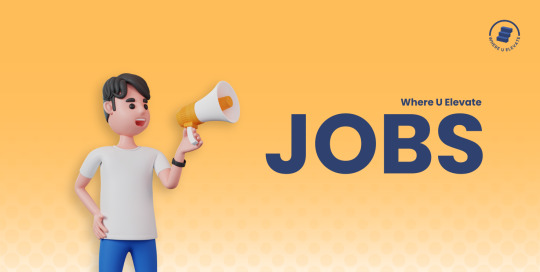
Landing a position in Senior Software Engineer Jobs is no small feat. It requires not only exceptional technical skills but also the ability to demonstrate leadership, problem-solving prowess, and a deep understanding of software development principles. If you’re aiming to secure a role in Software Engineer Jobs at the senior level, you need a strategic approach to your interview preparation. Here’s a comprehensive guide to help you ace your interviews and land that dream job!
1. Understand the Role and Expectations
Before diving into preparation, it's crucial to understand what makes a great Senior Software Engineer. Here’s what recruiters typically look for:
Technical Expertise: Deep knowledge in programming languages (Java, Python, C++), algorithms, and data structures.
System Design Skills: Ability to design scalable, reliable, and efficient systems.
Leadership and Mentorship: Proven track record of leading teams, mentoring junior engineers, and driving projects to completion.
Problem-Solving Ability: Strong analytical skills and a knack for tackling complex technical challenges.
2. Revise Core Technical Skills
As a Senior Software Engineer, you must demonstrate a strong grasp of technical fundamentals. Here’s a focused approach:
Advanced Algorithms and Data Structures: Brush up on algorithms (sorting, searching, dynamic programming) and data structures (trees, graphs, heaps). Practice problems on platforms like LeetCode, HackerRank, or CodeSignal.
System Design: Master system design principles. Study case studies and practice designing scalable systems. Key areas include load balancing, caching, database sharding, and microservices architecture. Resources like Grokking the System Design Interview can be invaluable.
3. Hands-On Coding and Problem Solving
Coding interviews are a critical component of Senior Software Engineer Jobs. Here’s how to excel:
Mock Interviews: Participate in mock interviews with peers or use platforms like Pramp or Interviewing.io to simulate real interview scenarios. This helps you get comfortable with the format and receive feedback.
Coding Practice: Work on coding challenges regularly. Focus on solving problems that are likely to be asked in senior-level interviews. Use tools like LeetCode, Codeforces, or TopCoder.
4. Deep Dive into Technologies and Tools
Senior roles often require expertise in specific technologies. Here’s a breakdown:
Programming Languages: Ensure you are proficient in the languages commonly used in the industry. For instance, Java, Python, C++, or JavaScript.
Development Tools and Frameworks: Be well-versed in popular frameworks and tools relevant to your field. This might include Spring Boot for Java, Django for Python, or React for JavaScript.
DevOps and CI/CD: Familiarize yourself with DevOps practices, CI/CD pipelines, and tools like Jenkins, Docker, Kubernetes, or Terraform. Understanding these can give you an edge.
5. Showcase Your Problem-Solving Skills
Problem-solving is a core competency for senior roles. Here’s how to showcase it:
Real-World Problems: Prepare to discuss past projects and problems you’ve solved. Highlight your role, the challenges faced, and the impact of your solutions.
Technical Deep Dives: Be ready to dive deep into technical discussions. Explain your thought process, decisions, and trade-offs. Use the STAR method (Situation, Task, Action, Result) to structure your answers.
6. Prepare for Behavioral and Situational Questions
Senior positions often come with leadership and behavioral questions. Here’s how to prepare:
Leadership Experience: Be ready to discuss your experience in leading teams, mentoring peers, and driving projects. Use specific examples to demonstrate your leadership style and achievements.
Problem-Solving Scenarios: Expect situational questions that test your decision-making and problem-solving skills. Practice questions like, “How do you handle conflicts within your team?” or “Describe a time when you had to solve a complex technical problem.”
7. Demonstrate Your Soft Skills
Soft skills are crucial for senior roles. Here’s how to highlight them:
Communication Skills: Clearly articulate your thoughts and ideas. Practice explaining complex technical concepts to non-technical stakeholders.
Collaboration and Teamwork: Showcase your ability to work effectively in a team. Discuss your experience with cross-functional teams, code reviews, and collaborative projects.
8. Research the Company and Role
Understanding the company’s culture, products, and technologies is essential:
Company Research: Study the company’s website, recent projects, and news. Understand their tech stack, products, and market position.
Role-Specific Preparation: Review the job description carefully. Align your skills and experiences with the requirements. Prepare to discuss how you can contribute to their projects and goals.
9. Ask Insightful Questions
Asking thoughtful questions can set you apart:
About the Team: Inquire about the team structure, development processes, and current projects. Questions like, “What are the biggest challenges the team is facing?” or “How does the team handle code reviews?”
About Growth and Opportunities: Ask about career growth opportunities, learning and development programs, or future projects. Questions like, “What opportunities are there for professional development?” or “What are the next big projects the team is working on?”
10. Practice, Practice, Practice
The key to acing your interview is consistent practice:
Mock Interviews: Schedule regular mock interviews with peers or mentors. Use platforms like Interviewing.io or Pramp for real-time feedback.
Coding Practice: Dedicate time each day to coding practice. Solve problems on competitive coding sites and review your solutions.
Feedback Loop: Seek feedback on your coding and interview performance. Use this feedback to refine your approach and improve continuously.
0 notes
Text
Navigating Your Path to Becoming a DevOps Engineer
Are you aiming to kickstart your career journey as a DevOps engineer? DevOps stands at the intersection of software development and IT operations, offering a blend of practices that streamline and automate processes. With organizations prioritizing efficient software delivery, the demand for adept DevOps professionals continues to surge. If you're eager to carve your niche in this dynamic field, here's a comprehensive roadmap to help you land your dream DevOps engineer role.
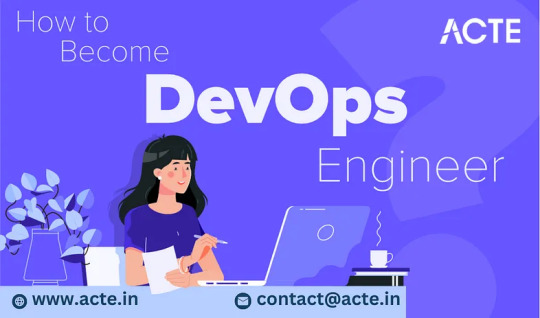
Step 1: Grasp the Core Concepts
Before delving into job applications, it's essential to grasp the core tenets of DevOps. This entails understanding the principles behind continuous integration, continuous delivery, automated testing, and infrastructure as code.
Familiarize yourself with key DevOps tools like Docker, Kubernetes, Jenkins, Ansible, and Git. Leverage online tutorials, courses, and resources to deepen your understanding of these concepts and tools.
Step 2: Refine Your Skill Set
With the fundamentals in place, it's time to hone your skills through practical application. Set up a lab environment on your machine or utilize cloud platforms like AWS, Azure, or Google Cloud to gain hands-on experience in deploying and managing infrastructure.
Engage in projects that involve automating tasks, configuring CI/CD pipelines, and working with containerized applications. Consider pursuing relevant certifications such as AWS Certified DevOps Engineer, Docker Certified Associate, and Certified Kubernetes Administrator to validate your expertise.
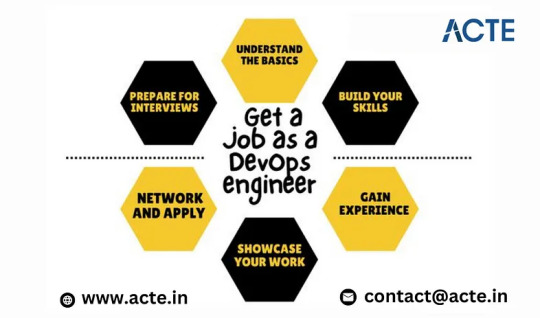
Step 3: Gain Practical Experience
Hands-on experience is invaluable in the journey to becoming a proficient DevOps engineer. Seek out opportunities for real-world exposure, whether through internships, freelance projects, or contributions to open-source initiatives.
Immerse yourself in online communities and forums to collaborate with peers, share insights, and stay abreast of industry trends. If you're currently employed in a different IT or software development role, look for opportunities to incorporate DevOps-related tasks into your responsibilities.
Step 4: Showcase Your Accomplishments
As you accumulate experience and refine your skills, build a compelling portfolio to showcase your achievements. This could take the form of a personal website, a GitHub repository, or a polished LinkedIn profile.
Highlight the projects you've worked on, the technologies you've utilized, and the outcomes you've achieved. Tailor your resume and cover letter to emphasize your DevOps expertise, using specific examples to demonstrate your contributions to successful projects.
Step 5: Network Strategically
Networking plays a crucial role in advancing your DevOps career. Attend industry events, meetups, and conferences to connect with professionals in the field. Engage in online communities and forums to expand your network and stay informed about job opportunities.
When applying for DevOps engineer roles, customize your applications to align with each company's culture and requirements. Demonstrate how your skills and experience can contribute to their objectives and success.
Step 6: Prepare for Interviews
Prepare thoroughly for interviews by familiarizing yourself with common DevOps interview questions and scenarios. Be ready to discuss your experience with relevant tools and technologies, as well as your problem-solving abilities and collaborative approach.
During the interview, convey your passion for DevOps and your ability to thrive in a fast-paced, collaborative environment. Highlight your communication skills, adaptability, and commitment to continuous learning and growth.
By following this roadmap and remaining dedicated to your professional development, you can increase your chances of securing a fulfilling DevOps engineer role. Good luck on your journey!
0 notes
Text
SRE (Site Reliability Engineering) Interview Preparation Guide
Site Reliability Engineering (SRE) is a highly sought-after role that blends software engineering with systems administration to create scalable, reliable systems. Whether you’re a seasoned professional or just starting out, preparing for an SRE interview requires a strategic approach. Here’s a guide to help you ace your interview.
1. Understand the Role of an SRE
Before diving into preparation, it’s crucial to understand the responsibilities of an SRE. SREs focus on maintaining the reliability, availability, and performance of systems. Their tasks include:
Monitoring and incident response
Automation of manual tasks
Capacity planning
Performance tuning
Collaborating with development teams to improve system architecture
2. Key Areas to Prepare
SRE interviews typically cover a range of topics. Here are the main areas you should focus on:
a) System Design
Learn how to design scalable and fault-tolerant systems.
Understand concepts like load balancing, caching, database sharding, and high availability.
Be prepared to discuss trade-offs in system architecture.
b) Programming and Scripting
Proficiency in at least one programming language (e.g., Python, Go, Java) is essential.
Practice writing scripts for automation tasks like log parsing or monitoring setup.
Focus on problem-solving skills and algorithms.
c) Linux/Unix Fundamentals
Understand Linux commands, file systems, and process management.
Learn about networking concepts such as DNS, TCP/IP, and firewalls.
d) Monitoring and Observability
Familiarize yourself with tools like Prometheus, Grafana, ELK stack, and Datadog.
Understand key metrics (e.g., latency, traffic, errors) and Service Level Objectives (SLOs).
e) Incident Management
Study strategies for diagnosing and mitigating production issues.
Be ready to explain root cause analysis and postmortem processes.
f) Cloud and Kubernetes
Understand cloud platforms like AWS, Azure, or GCP.
Learn Kubernetes concepts such as pods, deployments, and service meshes.
Explore Infrastructure as Code (IaC) tools like Terraform.
3. Soft Skills and Behavioral Questions
SREs often collaborate with cross-functional teams. Be prepared for questions about:
Handling high-pressure incidents
Balancing reliability with feature delivery
Communication and teamwork skills
Read More: SRE (Site Reliability Engineering) Interview Preparation Guide
0 notes
Text
How Should I Prepare For a Full Stack Developer interview?
How to Prepare for a Full Stack Developer Interview
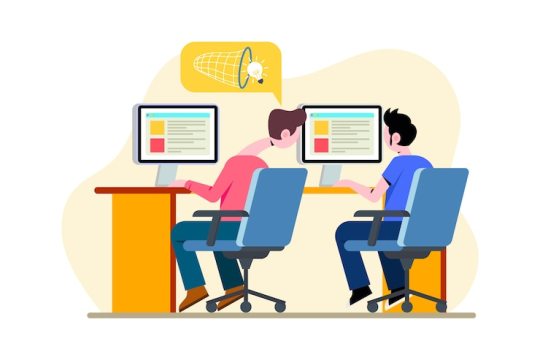
Preparing for a full stack developer interview involves a combination of technical knowledge, problem-solving skills, and familiarity with common tools and technologies. Here are some steps you can follow to prepare effectively:
Understand the Job Description: Carefully read the job description to understand the specific skills, technologies, and responsibilities required for the position.
Review Core Concepts: Brush up on fundamental programming concepts such as data structures, algorithms, object-oriented programming, and design patterns. Ensure you're comfortable with both front-end and back-end technologies.
Learn Relevant Technologies: Familiarize yourself with the technologies mentioned in the job description. This may include programming languages (e.g., JavaScript, Python, Java, etc.), front-end frameworks (e.g., React, Angular, Vue.js), back-end frameworks (e.g., Node.js, Django, Flask), databases (e.g., SQL, NoSQL), version control systems (e.g., Git), and deployment tools (e.g., Docker, Kubernetes).
Practice Coding: Practice coding challenges on platforms like LeetCode, HackerRank, or CodeSignal. Focus on algorithms, data structures, and problem-solving techniques. Also, practice implementing CRUD operations, authentication, and authorization in a full stack application.
Build Projects: Create or contribute to projects that showcase your full stack development skills. This could be personal projects, open-source contributions, or projects from online coding courses. Be prepared to discuss the architecture, technologies used, challenges faced, and your contributions to these projects.
Prepare for System Design: For senior-level positions, be ready to discuss system design principles. Practice designing scalable and efficient systems, considering aspects like database design, caching strategies, load balancing, and microservices architecture.
Mock Interviews: Conduct mock interviews with friends, colleagues, or mentors. Practice explaining your thought process, solving coding problems on a whiteboard or online platform, and answering technical questions related to full stack development.
Research the Company: Learn about the company's products, services, culture, and technology stack. Tailor your answers during the interview to demonstrate how your skills and experience align with the company's needs and goals.
Prepare Questions: Prepare thoughtful questions to ask the interviewer about the company, team structure, projects, and future opportunities. This shows your interest and engagement in the role.
Stay Updated: Keep abreast of the latest trends, updates, and best practices in full stack development by reading blogs, following industry experts, attending webinars, and participating in relevant online communities.
Introduction to Full Stack Development
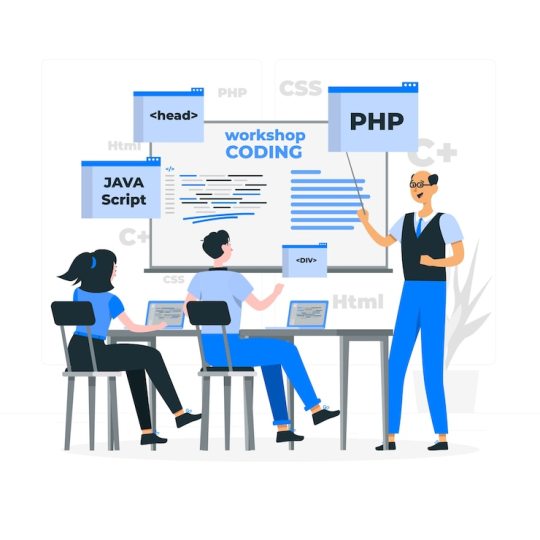
Full stack development is a term used to describe the comprehensive skill set required to develop both the front end and back end of web applications. It involves working with both client-side and server-side technologies to create fully functional and interactive web applications. A full stack developer is someone who is proficient in various programming languages, frameworks, databases, and other tools necessary for building the different components of a web application.
Let's break down the key components of full stack development:
Front End Development: This involves everything that users interact with directly in a web application. It includes the user interface (UI) design, user experience (UX) optimization, and client-side programming. Technologies commonly used in front end development include HTML, CSS, and JavaScript, along with frameworks/libraries like React, Angular, or Vue.js for building dynamic and responsive user interfaces.
Back End Development: This part of development focuses on the server-side logic, databases, and server management required to power the web application. Back end developers work with server-side languages like Node.js, Python (with frameworks like Django or Flask), Ruby (with Rails), or Java (with Spring Boot). They also interact with databases such as MySQL, PostgreSQL, MongoDB, or Firebase for data storage and retrieval.
Database Management: Full stack developers should have a good understanding of database management systems (DBMS) and how to design efficient database schemas. They work with SQL (Structured Query Language) for relational databases and NoSQL databases like MongoDB for non-relational data storage.
Version Control Systems:��Full stack developers use version control systems like Git to manage and track changes in the codebase, collaborate with other developers, and maintain a history of code revisions.
Deployment and DevOps: Understanding deployment processes, continuous integration/continuous deployment (CI/CD) pipelines, and basic DevOps principles is crucial for full stack developers. They deploy applications to hosting platforms like AWS, Heroku, or Azure and ensure the application runs smoothly in production environments.
Soft Skills: In addition to technical skills, full stack developers should possess good problem-solving abilities, communication skills, teamwork skills, and the ability to adapt to new technologies and tools quickly.
Preparing for a Full Stack Developer Interview
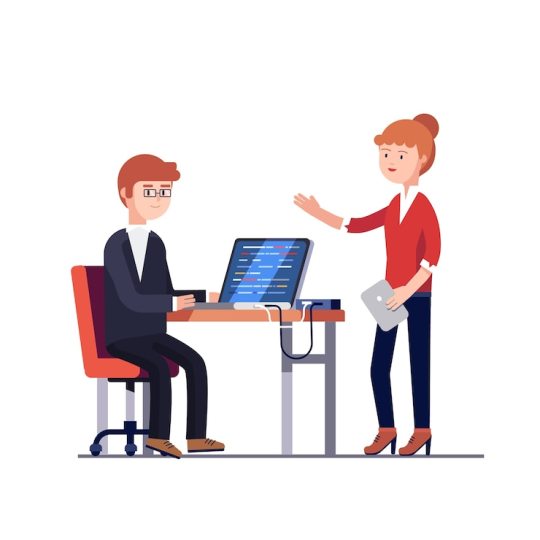
Before diving into the interview process, it's crucial to:
Preparing for a Full Stack Developer interview requires a solid understanding of both frontend and backend technologies, as well as concepts related to web development, databases, version control, and deployment. Here are some key steps to help you prepare effectively:
Review Core Concepts:
Make sure you have a strong understanding of programming languages such as JavaScript, Python, Java, or others commonly used in full-stack development.
Familiarize yourself with frontend frameworks like React, Angular, or Vue.js, as well as backend frameworks like Node.js, Flask, Django, Spring Boot, etc.
Understand RESTful API principles, HTTP protocols, and web development concepts such as DOM manipulation, responsive design, and browser compatibility.
Database Knowledge:
Brush up on database concepts including SQL queries, database design, normalization, indexing, and transactions.
Familiarize yourself with popular database management systems like MySQL, PostgreSQL, MongoDB, etc.
Understand how to integrate databases with backend applications using ORM tools like Hibernate, Sequelize, or SQLAlchemy.
Version Control and Collaboration:
Practice using version control systems like Git and platforms like GitHub or GitLab.
Understand branching strategies, merging, resolving conflicts, and collaborating with other developers using Git workflows.
Data Structures and Algorithms:
Review fundamental data structures such as arrays, linked lists, stacks, queues, trees, graphs, and hash tables.
Practice algorithmic problem-solving techniques and understand time complexity, space complexity, and Big O notation.
Web Development Tools and Technologies:
Familiarize yourself with frontend build tools like Webpack, Babel, npm, or yarn.
Understand CSS preprocessors like Sass or Less, and frontend testing frameworks like Jest, Mocha, or Jasmine.
Learn about backend testing frameworks such as JUnit, Pytest, or Jasmine for Node.js.
Deployment and DevOps:
Understand deployment strategies including containerization with Docker and orchestration with Kubernetes.
Learn about Continuous Integration/Continuous Deployment (CI/CD) pipelines using tools like Jenkins, Travis CI, or GitHub Actions.
Familiarize yourself with cloud platforms like AWS, Azure, Google Cloud Platform, or Heroku for deploying and managing applications.
Soft Skills and Communication:
Practice communicating technical concepts clearly and concisely, both verbally and in writing.
Prepare to discuss your past projects, experiences, and problem-solving approaches during the interview.
Demonstrate your ability to work in a team, collaborate with others, and adapt to new technologies and challenges.
Mock Interviews and Practice Questions:
Conduct mock interviews with friends, colleagues, or through online platforms to simulate real interview scenarios.
Practice answering common interview questions related to your technical skills, problem-solving abilities, project experiences, and teamwork.
Stay Updated:
Keep up-to-date with industry trends, new technologies, and best practices in full-stack development through blogs, forums, online courses, and conferences.
By following these steps and dedicating time to study and practice, you'll be well-prepared to ace your Full Stack Developer interview. Good luck!
Java Full Stack Developer Course Syllabus
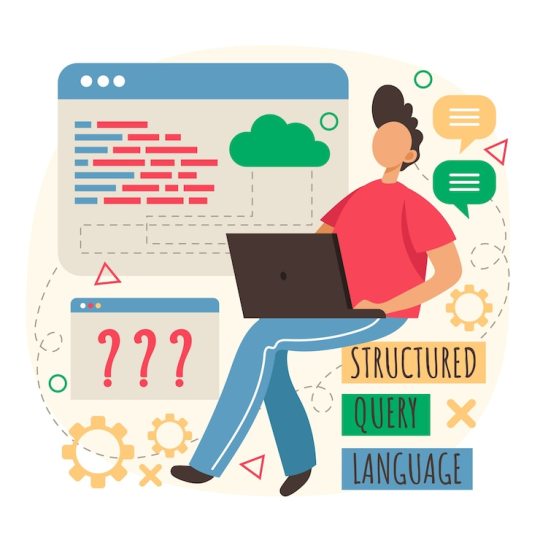
For aspiring Java Full Stack Developers, a comprehensive course syllabus may include:
Week 1-2: Introduction to Python for Web Development
Introduction to Python programming language
Setting up development environment (Python, text editor/IDE)
Basic syntax, data types, and control structures in Python
Introduction to web development with Python (Flask or Django)
Week 3-4: Frontend Development
HTML5 fundamentals
CSS3 for styling web pages
Introduction to JavaScript and DOM manipulation
Frontend frameworks/libraries (e.g., Bootstrap, React)
Week 5-6: Backend Development with Python
Introduction to backend development concepts
Using Flask or Django for backend development
Routing, views, and templates
Handling HTTP requests and responses
Week 7-8: Database Management
Introduction to databases (SQL and NoSQL)
Using SQLite with Python
ORM (Object-Relational Mapping) with SQLAlchemy
Database design and normalization principles
Week 9-10: Building RESTful APIs
Understanding RESTful architecture
Creating RESTful APIs with Flask or Django REST framework
Authentication and authorization for APIs
Consuming APIs using HTTP client libraries
Week 11-12: Deployment and DevOps
Introduction to cloud platforms (e.g., AWS, Heroku)
Deployment strategies for web applications
Continuous Integration and Continuous Deployment (CI/CD)
Monitoring and scaling web applications
Week 13-14: Project Development
Collaborative project work in teams
Applying concepts learned throughout the course
Version control with Git/GitHub
Final project presentations and demonstrations
Assessments:
Quizzes and exams covering theoretical and practical concepts
Programming assignments and projects
Peer code reviews and project evaluations
Final project presentation and report
Recommended Resources:
"Flask Web Development" by Miguel Grinberg
"Django for Beginners" by William S. Vincent
Online documentation for Flask, Django, SQLAlchemy, etc.
Web development tutorials and forums (e.g., Stack Overflow, GitHub)
Note: This syllabus is subject to change based on instructor discretion and course updates. Students are expected to actively engage in discussions, seek clarification when needed, and participate in all course activities.
Java Full Stack Developer Course Syllabus
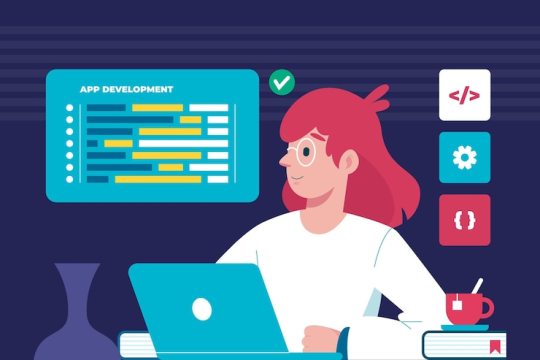
Certainly! Here's an example of a Java Full Stack Developer course syllabus. This syllabus covers a range of topics from frontend development using Java-related technologies to backend development and database management.
This course is designed to equip students with the skills and knowledge required to become a proficient full-stack developer using Java-based technologies. Students will learn frontend development, backend development, database management, and deployment strategies to build dynamic web applications.
Week 1-2: Introduction to Java for Web Development
Introduction to Java programming language
Setting up Java Development Kit (JDK) and Integrated Development Environment (IDE)
Basic syntax, data types, and control structures in Java
Introduction to web development with Java (e.g., Spring Boot)
Week 3-4: Frontend Development with Java
HTML5 and CSS3 fundamentals
Introduction to JavaScript and DOM manipulation
Frontend frameworks/libraries (e.g., Thymeleaf, Angular, React)
Integrating frontend with Java backend using RESTful APIs
Week 5-6: Backend Development with Java
Introduction to backend development concepts
Using Spring Boot for backend development
Building RESTful APIs with Spring MVC or Spring WebFlux
Handling HTTP requests and responses
Week 7-8: Database Management
Introduction to databases (SQL and NoSQL)
Using MySQL or PostgreSQL with Java applications
ORM (Object-Relational Mapping) with Hibernate or JPA
Database design and normalization principles
Week 9-10: Advanced Java Concepts
Exception handling and error management
Multithreading and concurrency in Java
File I/O operations and serialization
Java design patterns and best practices
Week 11-12: Deployment and DevOps
Introduction to cloud platforms (e.g., AWS, Azure)
Deployment strategies for Java web applications
Containerization with Docker
Continuous Integration and Continuous Deployment (CI/CD) pipelines
Week 13-14: Project Development
Collaborative project work in teams
Full-stack application development using Java technologies
Version control with Git/GitHub
Final project presentations and demonstrations
Assessments:
Quizzes and exams covering theoretical and practical concepts
Programming assignments and projects
Peer code reviews and project evaluations
Final project presentation and report
Recommended Resources:
"Spring Boot in Action" by Craig Walls
"Java: The Complete Reference" by Herbert Schildt
Online documentation for Spring Framework, Hibernate, Docker, etc.
Web development tutorials and forums (e.g., Stack Overflow, GitHub)
Full Stack Python Syllabus
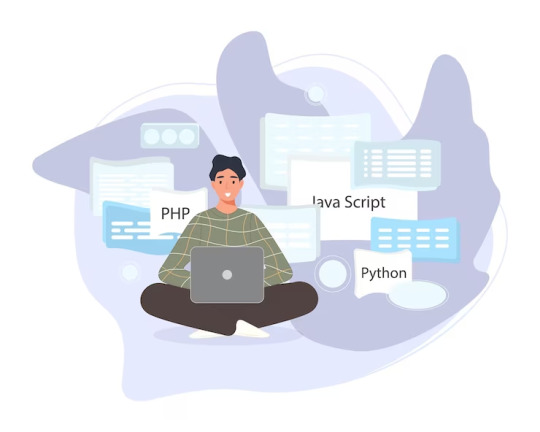
On the other hand, a full stack python syllabus may cover:This course provides an in-depth exploration of full-stack web development using the Python programming language. Students will learn to build dynamic web applications by combining frontend technologies with backend frameworks and databases.
Week 1-2: Introduction to Python for Web Development
Introduction to Python programming language
Setting up development environment (Python, text editor/IDE)
Basic syntax, data types, and control structures in Python
Introduction to web development with Python (Flask or Django)
Week 3-4: Frontend Development
HTML5 fundamentals
CSS3 for styling web pages
Introduction to JavaScript and DOM manipulation
Frontend frameworks/libraries (e.g., Bootstrap, React)
Week 5-6: Backend Development with Python
Introduction to backend development concepts
Using Flask or Django for backend development
Routing, views, and templates
Handling HTTP requests and responses
Week 7-8: Database Management
Introduction to databases (SQL and NoSQL)
Using SQLite with Python
ORM (Object-Relational Mapping) with SQLAlchemy
Database design and normalization principles
Week 9-10: Building RESTful APIs
Understanding RESTful architecture
Creating RESTful APIs with Flask or Django REST framework
Authentication and authorization for APIs
Consuming APIs using HTTP client libraries
Week 11-12: Deployment and DevOps
Introduction to cloud platforms (e.g., AWS, Heroku)
Deployment strategies for web applications
Continuous Integration and Continuous Deployment (CI/CD)
Monitoring and scaling web applications
Week 13-14: Project Development
Collaborative project work in teams
Applying concepts learned throughout the course
Version control with Git/GitHub
Final project presentations and demonstrations
Assessments:
Quizzes and exams covering theoretical and practical concepts
Programming assignments and projects
Peer code reviews and project evaluations
Final project presentation and report
Recommended Resources:
"Flask Web Development" by Miguel Grinberg
"Django for Beginners" by William S. Vincent
Online documentation for Flask, Django, SQLAlchemy, etc.
Web development tutorials and forums (e.g., Stack Overflow, GitHub)
Note: This syllabus is subject to change based on instructor discretion and course updates. Students are expected to actively engage in discussions, seek clarification when needed, and participate in all course activities.
By following a structured course syllabus and practicing hands-on coding, you can gain the necessary skills to excel as a Full Stack Developer in either Java or Python ecosystems.
Conclusion
Preparing for a Full Stack Developer interview requires a combination of technical knowledge, practical skills, and preparation strategies. By focusing on the key skills, understanding course syllabi, and practicing interview scenarios, you'll be well-equipped to showcase your expertise and land your dream job as a Full Stack Developer.
Unique FAQs
**What is the average salary of a Full Stack Developer?
The average salary of a Full Stack Developer varies based on location, experience, and company size. In general, Full Stack Developers command competitive salaries due to their in-demand skills.
**Do I need a degree to become a Full Stack Developer?
While a degree in Computer Science or a related field can be beneficial, many Full Stack Developers are self-taught or have completed coding bootcamps. What's essential is a strong grasp of programming fundamentals and practical experience.
**Are there online courses available for Java Full Stack Development?
Yes, numerous online platforms offer comprehensive courses on Java Full Stack Development, covering everything from core Java concepts to advanced frameworks and deployment strategies.
**How can I stay updated with the latest trends in Full Stack Development?
To stay updated, follow industry blogs, participate in online communities like Stack Overflow and GitHub, attend webinars and conferences, and continuously upskill through online courses or self-directed learning.
**What are some common challenges faced by Full Stack Developers?
Common challenges include managing multiple technologies, staying updated with evolving frameworks and tools, debugging complex issues, and ensuring seamless integration between frontend and backend components.
0 notes